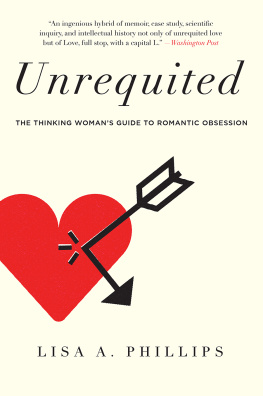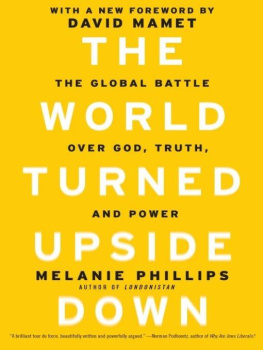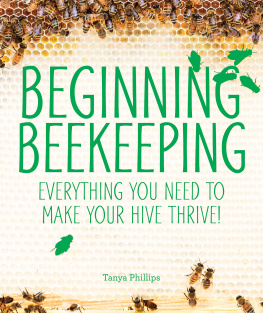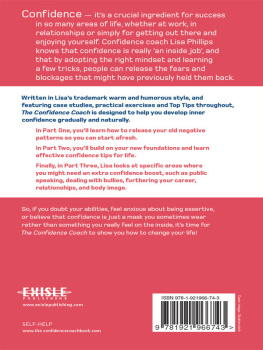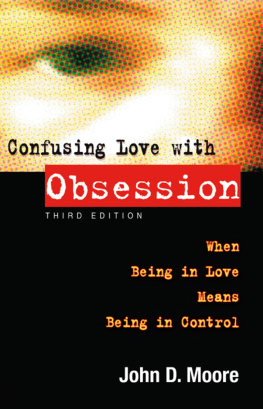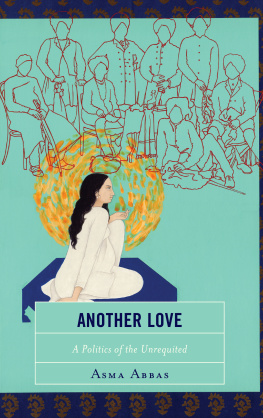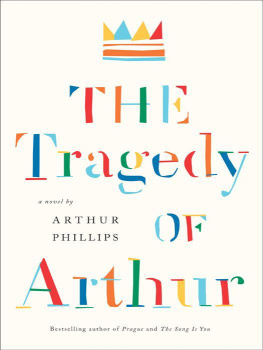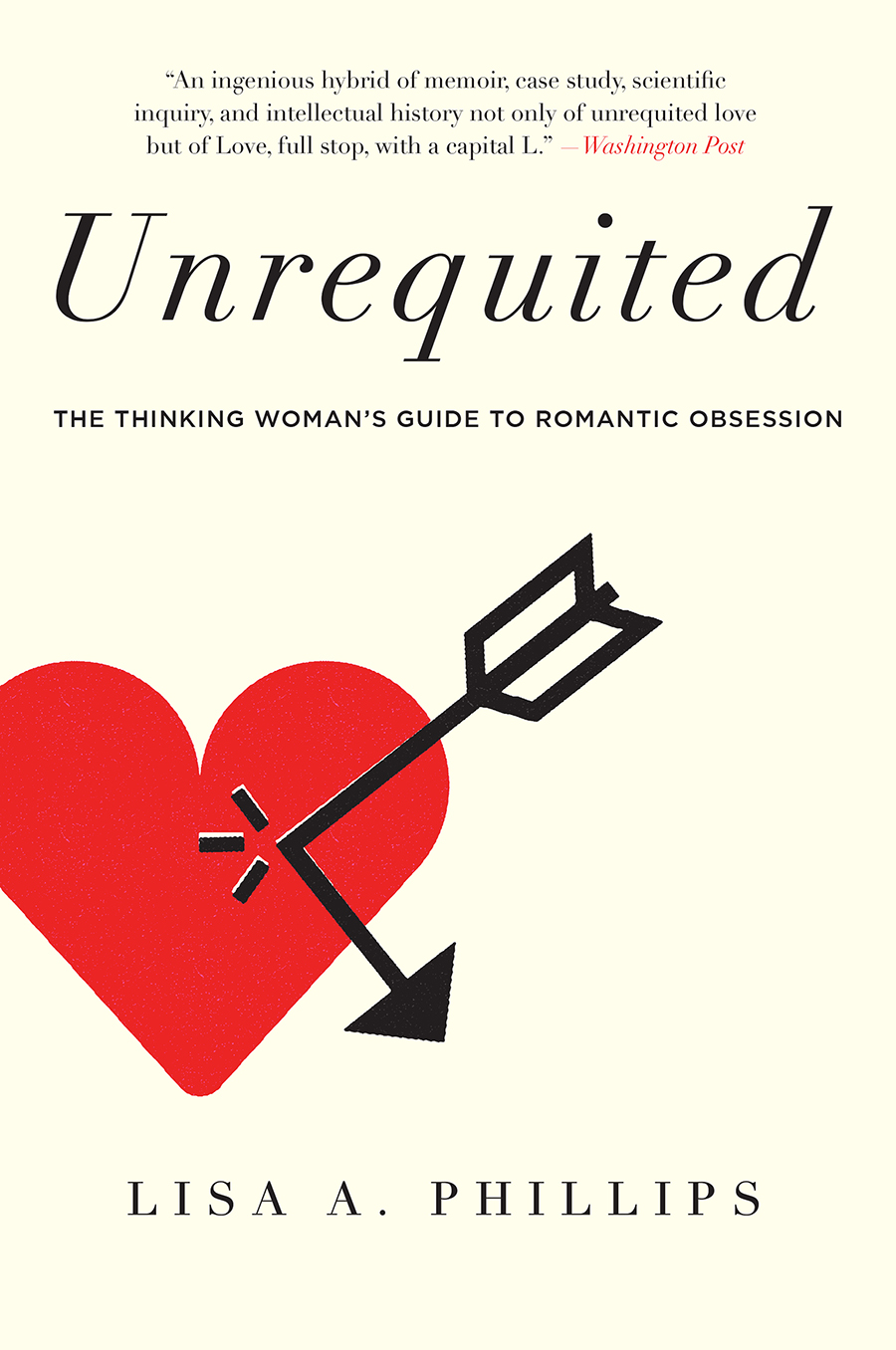Public Radio: Behind the Voices
For Bill and Clara, who requite
I am not resigned to the shutting away
of loving hearts in the hard ground.
EDNA ST. VINCENT MILLAY
Contents
Introduction:
The Unwanted Woman
I WOKE UP BEFORE DAWN. I WANTED TO hold on to the blankness of sleep, but thoughts of B. crept in too quickly. It had been a long time since Id been able to think of anything else.
Id imagined my future with B., and now there was no future. Time moved forward anyway, excruciatingly, every moment proof of my abandonment. He wasnt with me, not this minute, not the next. And he was supposed to be. I knew he was supposed to be. He was asleep in his own bed, a ten-minute walk away, in his studio apartment on the ninth floor of the Morrowfield, the tallest apartment building in Squirrel Hill, our Pittsburgh neighborhood. I couldnt reconcile the immensity of what I was feeling with his faithfulness to his girlfriend, a struggling actress who lived four hundred miles away, a woman he felt responsible for but didnt seem to truly want.
I hurried to the Morrowfield in the dim morning light. I stood in the lobby with its worn art deco tiling, slouching in front of the security door. I rummaged through my pockets, acting like a tenant whod lost her key. Someone walked out and, asking no questions, held the door for me. It was easy to get this close.
I took the elevator to the ninth floor. I knocked softly on B.s door. No answer. I kept knocking, letting the raps get a little harder, a little louder. The man in the next apartment opened his door. Just checking to make sure its not for me, he said.
Did I wake you?
Nope. I get up early. Sounds like youre trying to get him to do the same. I nodded. Well, good luck. Seems like a sound sleeper.
The man assumed I had every right to be there. I clung to that notion, his trust that I was just some tired student with bloodshot eyes waking up another for an early class.
I kept knocking. I counted, letting myself have five at a time until the total reached twenty, then thirty, then I lost count. I went out to the rooftop. It was November, two days before Thanksgiving, and gray. The wind whipped around me, and I thought back to that summer, of the warm nights B. and I had spent watching the sky, drinking bourbon and talking.
I went back and knocked again. I could do nothing else. Who would reject this kind of desire, desire that walks through security doors and knocks and knocks and knocks, refusing to go away? Isnt this what we all dream of, feelings so strong they allow us to flout the rules? This moment would be a story for later, when we told others how our romance started: I couldnt get him off my mind, and one morning I just showed up at his apartment
B. opened the door a crack. He wielded a baseball bat in one hand and the phone in the other. Phillips, get out of here, he said. Im going to call the cops.
I WAS IN love with an unavailable man, an old, sad story. When I first started to fall for him, months before, my feelings gave me pleasure and hope. I would wait for him, as lovers had waited for each other since the beginning of time. But as the months passed and he didnt come around, something inside me shifted. My unrequited love became obsessive. It changed me from a sane, conscientious college teacher and radio reporter into someone I barely knewsomeone who couldnt realize that she was taking her yearning much, much too far.
How did this happen to me?
Years later, long after my obsession ended and I found someone else, married him, and became a mother, I promised myself that I would try to understand this bizarre transformation, which overtook me the year I turned thirty. I delved into the history and literature surrounding romantic obsession, courtship, and love, taking in everything from Renaissance medical treatises to contemporary advice books. I surveyed more than 260 women online about their experiences of loving someone who didnt love them back. Most revealing were the more than thirty in-depth interviews I did with women about their experiences of unrequited love. Their stories became the heartbeat of this book.
I also immersed myself in research in psychology and neuroscience, which confirmed what I observed all around me: Its common for women (and men) to be in unrequited love, and to have intense emotional and physiological reactions to it. They may obsess to the point of being able to think of little else. They may take the feelings out on themselves, acting in self-destructive ways. Or they may act out, emotionally and even physically, to hurt the person whos rejecting them.
Though unrequited love can get out of hand, it doesnt have to. I found in my interviews and in historical accounts of womens lives abundant evidence of the powerful benefits of unrequited love. It can move us in unexpected and important ways. And if we can gain enough distance from the pull of obsession to be able to understand it, unrequited love can be a highly meaningful state of mind, offering us insights into what we really want in life and love. Almost inevitably, its not the person weve been fixated on.
WE LIVE IN an era of romantic practicality. The prevailing attitude toward the lovelorn, regurgitated again and again in formulaic advice books, is: If someone doesnt love you back, just move on. Yet research suggests that moving on isnt so easy. Unrequited love is a near-universal experience; in one survey, 93 percent of respondents had been rejected by someone they passionately loved. Both men and women experience unrequited love, and there is no clear evidence that one sex is more vulnerable to it than the other.
I decided to focus on women because society judges women in unrequited love more harshly. At the same time, it seems to understand them less. This tendency to dismiss the unwanted woman may come from the belief that women have more at stake in the mating game. They are the ones, with their time-bound reproductive systems, who are under more pressure to find a partner sooner, particularly these days. The median age of marriage is rising and marriage rates are falling; at last count, just 51 percent of adults eighteen and older are married. These demographic shifts have made finding a spouse in time to make a family together a competitive sport, with a thriving Dating Industrial Complex featuring speed-dating events and expensive personal relationship coaches. In this revved-up, commercialized, and markedly pragmatic mating arena, a woman preoccupied by impossible love is a pariah, indulging in a massive waste of time.
However, many women experience unrequited love when theyre not in the dating markettheyre already married, say, or have no intention of marrying or having children. Or theyre too young or old to feel the pressures of the mating game. I believe theres another, more profound reason why we grapple uncomfortably with the idea of a woman whos consumed by unrequited love: There is something disturbing about the stubbornness of romantic obsession, about its unbridled conviction of rightness. The object of unrequited love doesnt choose to be loved. So unrequited love, even when endured in secret, without overt pursuit (the case with many of the women I talked to) is a form of rebellionan uncontrollable (at least for a time) state of I want that persists no matter how the beloved feels and what common sense says. Unrequited love isnt sensible, obedient, or practical. It doesnt follow the rules.
Were far more comfortable, and, historically, more familiar with the idea of women as the

